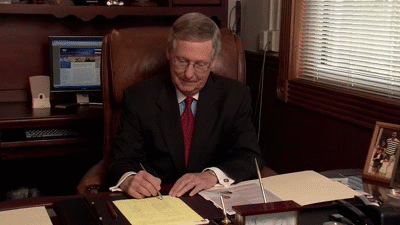Weird that the Boston Globe Editorial Board endorsed Charlie Baker for Governor of Massachusetts after the paper’s own coverage back in June about the connections between Baker and the pay-to-play scandals of the Chris Christie Administration in New Jersey:
Baker’s new-found notoriety in the Garden State came to a head when the New Jersey State Investment Council agreed to seek a legal review of the $10,000 donation he made to the New Jersey GOP in May 2011 — just seven months before General Catalyst, the investment firm where he is listed as an “executive in residence” principal, received $15 million from the state’s pension fund.
The council’s decision sparked a series of headlines across the state that has put Baker in the middle of the ongoing media feeding frenzy that is swirling around Christie and his administration.
Just last week, a Washington-based campaign finance watchdog group, Citizens for Responsibility and Ethics in Washington, called on the Securities and Exchange Commission, the New Jersey attorney general, and the state’s Election Law Enforcement Commission to investigate a possible connection between the donation and the investment.
Here’s a sampling of some of the headlines over the past month: “N.J. pension fund’s investment draws pay-to-play inquiry” is the way the Philadelphia Inquirer’s website, philly.com, headlined its story. “Christie administration to investigate pension investment tied to Massachusetts Republican” topped the story in the Newark Star Ledger. The Asbury Park Press and the Bergen Record covered the meeting with stories detailing the controversy.
The Inquirer website salted the wounds with a huge photo of Christie on a stage with Baker, then the 2010 GOP gubernatorial nominee, when the New Jersey governor came to Massachusetts to campaign for him. It also carried a head-shot of Baker farther on in the story, with the phrase “pay-to-play” in the caption. The controversy is also drawing national media. Businessweek ran a piece about the council’s decision, Fortune magazine has weighed in, and CNN’s website has also followed the story.
According to David Sirota, writing in the International Business Times last week, Chris Christie is now actively suppressing information related to the inquiry into Baker’s involvement in the situation in New Jersey.
As chairman of the Republican Governors Association, New Jersey Gov. Chris Christie has helped Charlie Baker with millions of dollars worth of ads supporting his Massachusetts gubernatorial campaign. But that’s not the only way he may be boosting the GOP candidate in the final weeks of a close election: Christie officials are blocking the release of the findings of New Jersey’s pay-to-play investigation into Baker.
The documents being withheld pertain to an investigation of Baker’s $10,000 contribution to the New Jersey Republican State Committee. The contributions came just months before Christie officials gave Baker’s company, General Catalyst, a contract to manage New Jersey pension money. New Jersey’s pay-to-play rules prohibit contributions to state parties from “any investment management professional associated” with a firm managing state pension money.
When the campaign donations and subsequent pension contract came to light in May, Democrats criticized Baker, who was then launching his 2014 campaign for governor of Massachusetts. In response, New Jersey launched a formal investigation into Baker’s contributions. The Newark Star-Ledger reported at the time that Christie officials “said the review would take several weeks.”
In a reply to International Business Times’ request for the findings of the audit under New Jersey’s Open Public Records Act, Christie’s Treasury Department said the request is being denied on the grounds that the documents in question are “consultative and deliberative material.” Despite officials’ assurances in May that the probe would take only weeks, the New Jersey Treasury said in September that the investigation is still “ongoing” — a designation the department says lets it stop the records from being released.
As a reminder: If the governor of Massachusetts has to resign for some reason — which, between scandals and promotions to Federal offices, is pretty common for U.S. governors in general these days — the lieutenant governor becomes Acting Governor of Massachusetts. From New York to Arizona, in the last six years, we’ve seen some pretty terrible lieutenant governors fail to rise to the challenge when suddenly promoted. If Charlie Baker becomes governor, and his term ends unexpectedly early for any reason, his current running mate, anti-gay Karyn Polito, would be the acting governor of Massachusetts.



 Governor Christie’s efforts to block a minimum wage raise in New Jersey were eventually overturned by a statewide ballot initiative.
Governor Christie’s efforts to block a minimum wage raise in New Jersey were eventually overturned by a statewide ballot initiative. 
